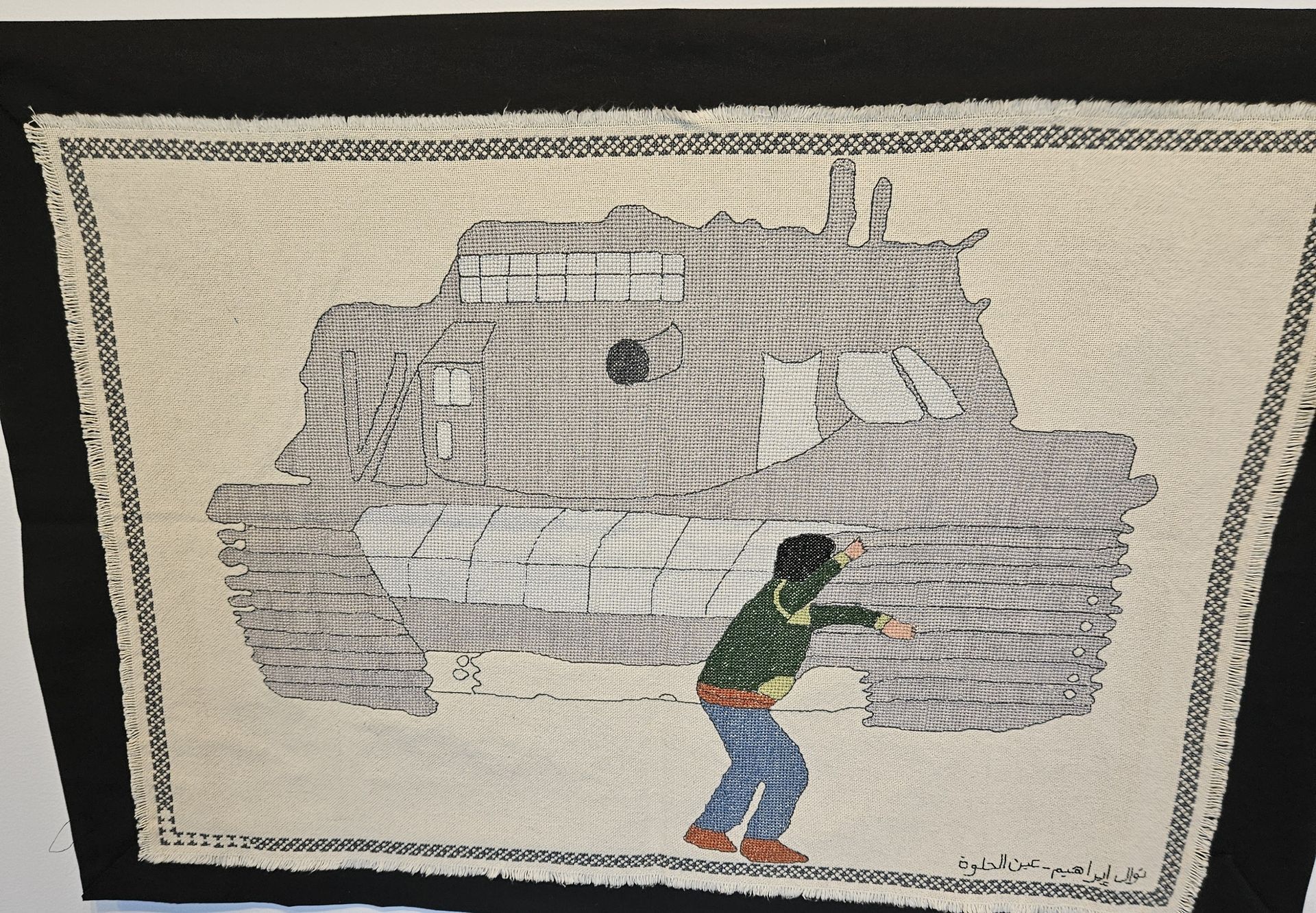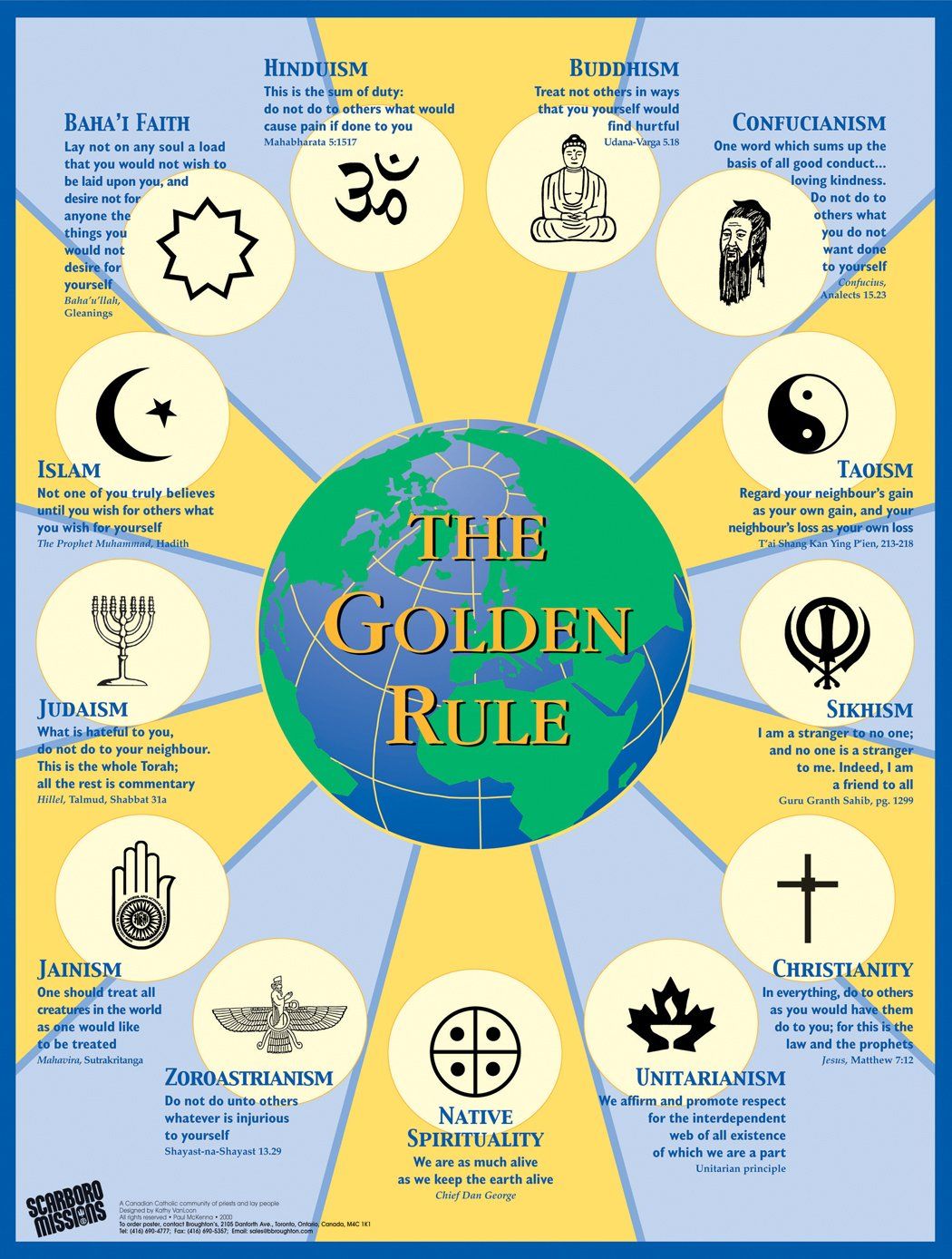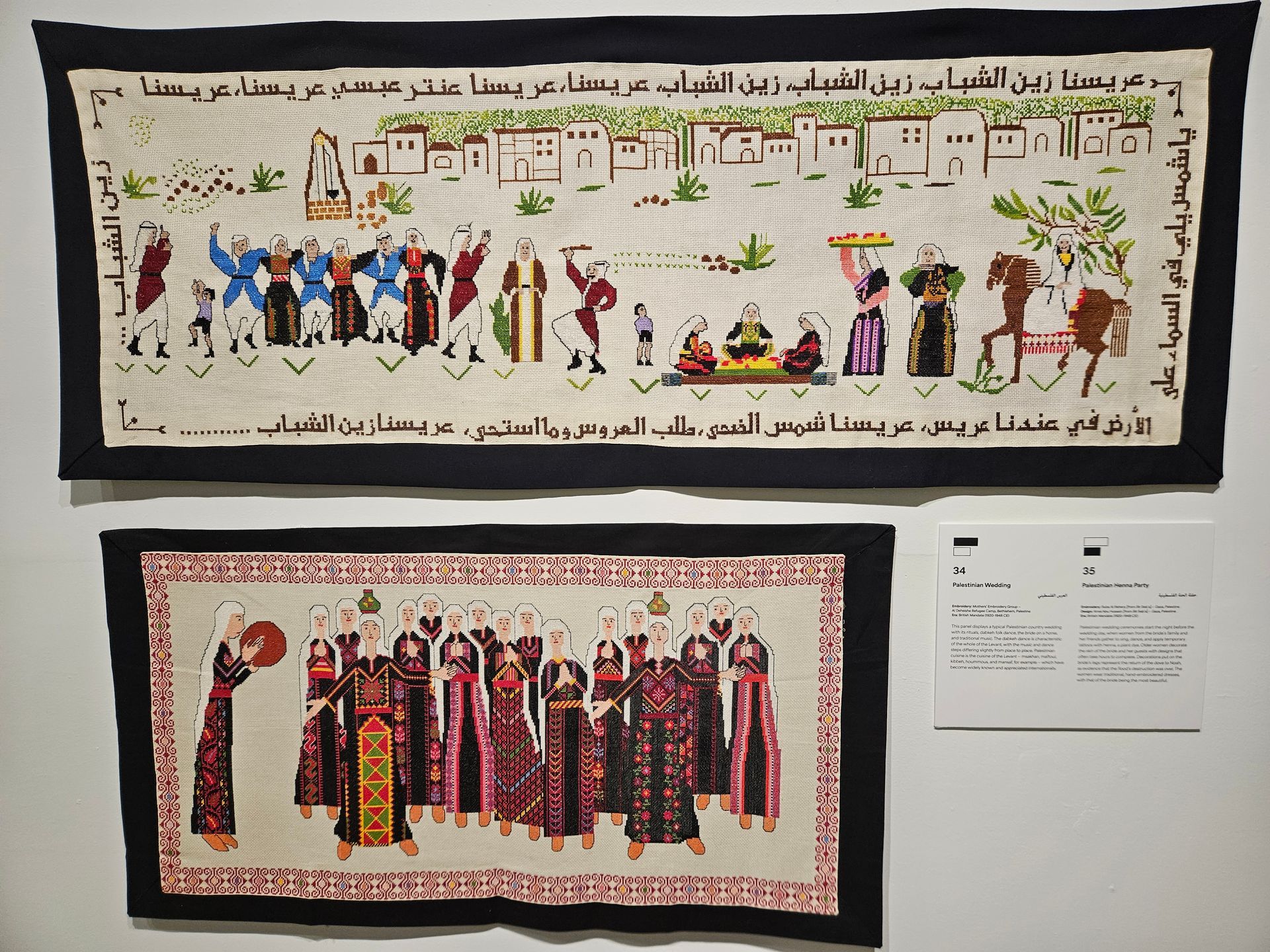
The Great Commandment, The Golden Rule & The Great Commission

[Continuation of series “From Generation to Generation” reflections sparked by my father’s doctoral thesis for the Free University of Amsterdam . A. H. Oussoren, “William Carey – Especially His Missionary Principles”, Leiden, A.W.Sijthoff's Uitgeversmaatschappij N.V.,1945. "The Golden Rule" poster: thanks to Scarborough Foreign Mission, Toronto]
The Great Commission Re-visited - From General to Generation Series #9
Previous posts in this series reviewed key points in my father’s thesis and concluded that the modern Christian mission movement of the occidental churches was rooted in assumptions about religious and cultural superiority at odds with the Great Commandment. No doubt, as David Bosch affirms, “ a primary motive of most missionaries was a genuine feeling of concern for others; they knew that the love of God had been shed abroad in their hearts and they were willing to sacrifice themselves for the sake of him who had died for them.” [Transforming Mission, New York, Maryknoll, 1991. P. 287]
But this primary personal motive of missionaries readily gave way to widespread institutional superiority assumptions which treated others – so called pagans and heathens, and others generally deemed inferior - as objects for transformation and conversion.
Ecumenical churches have largely relinquished these assumptions but the imperatives associated with the “Great Commission” gave rise – wittingly or not – to occidental interpretations such as seeking to rehabilitate, convert, mature lesser others into “Christian” religious and cultural norms. Too often the movement’s advocates “were blind to their own ethnocentrism. They confused their middle-class ideals and values with the tenets of Christianity.” [Bosch, p. 294.] Patriarchal values, association with commercial, military, and colonial power, and explicit or implicit theocratic aspirations – there is much to unpack and jettison in the history of the “Great Commission” as understood by the modern missionary movement largely launched by late 18th century mission organizations. [Read David Bosch ground-breaking work for more on this.]
Questions readily arise: what is mission really about? Is it to convert individuals to Christianity? To aggrandize and strengthen institutional Christianity? To counter other religions and ideologies? To Christianize the social order in nations?
In the end none of these options are at heart of the matter. After all, it is God’s mission we are talking about. Too often Christian institutions conflate their institutional mission and objectives with God’s mission to realize the divine vision to realize the shalom of all creation.. If the missio Dei
is the essence, then how do individuals and groups and institutions participate in task?
In grossly abbreviated form, here are some of the basic convictions identified in previous “From Generation to Generation” posts in this Pilgrim Praxis blog:
- All people are invited to participate freely in the movement to participate with God in God’s persistent mission to redeem the world and restore the divine shalom and many unconsciously do so.
- Every person in God’s human family is endowed with “gifts of the Spirit intended for the common good” (1Corinthians 12:7).
- Of the many gifts, humility and unconditional self-giving love for the other are foundational as Christians have experienced the Divine reality incarnated in Jesus, the Anointed One. (1Corinthians 12:4ff.) The Great Commandment to love God and neighbour is the articulation of this way of living.
- Respecting other sisters and brothers of God’s one human family acknowledges them as “created in God’s image”, as relations sharing in the divine love, and as recipients of the gifts of the Spirit. Creation too is part of that loving relationship and demands that humanity “live with respect in [and for] Creation” [United Church New Creed]
and with all its creatures.
- In relationships with diverse other members of God’s human family, sharing wisdom [sofia] is a crucial activity for the well-being of the family and of creation.
“When we share wisdom, we give and receive, and giving and receiving should be an exercise in love.
[For Christians]
Jesus Christ, the wisdom, is the embodiment of God’s love for humanity, and he summed up both ‘the law and the prophets’ and the ‘love command’ when he proclaimed the Golden Rule: “in everything do to others as you would have them do to you” (Matt. 7:12). ‘Everything’ encompasses the sharing of wisdom. For neighborly love to define how wisdom should be shared means that the act of sharing wisdom harmonizes with the content of what is shared.” (Miroslav Volf, “A Public Faith – How Followers of Christ Should serve the Common Good”.
Grand Rapids, Brazos Press, 2011. P.114)
- We celebrate the global interfaith fact that the “Golden Rule” in its various wordings, is embraced by the vast majority of world religions and Is regarded as a sign of our sharing in the Divine vision and with the Spirit’s gifts.
- Religious identities, though diverse, are not exclusive or closed, but inclusive and open to others and to the Holy Other’s mysterious ways because they share in the Spirit’s gifts.
- As humans share humbly and in love, the Spirit works “in us and others” [United Church New Creed]
to transform all who are and all that is with spiritual fruits as evidence. "Making disciples" has too often implied people rejecting their particular culture and identity and converting to Christianity. It does not follow, for me, that "being a friend and companion" (Greek: mathetes)
requires rejecting another faith tradition. At one Vancouver InterFaith event, I heard a Hindu exclaim "my dearest Jesus!" - something I've seldom heard Christians proclaim. On the other hand, I know "Christians" whose lives witness to everything but Christian values and principles, or the more general "do unto others, as you would like them to do to you."
- People of goodwill – sisters and brothers, friends and companions – always seek to draw the human family’s circle wider as they give and receive. This love of neighbour includes seeking to explore, to appreciate, to share, to engage, to challenge graciously, to understand, to rejoice in common truths, to celebrate diversity, to seek justice, to confess, and to forgive and be forgiven – all fundamental human traits born of the Spirit’s gifts and inherent in living the “Golden Rule”.
- When the “Golden Rule” is lived persistently and widely with "all our relations", there Earth has a chance to flourish and thrive and shalom rooted in justice allows joy and gratitude to abound.
To apply some concreteness, I will describe two projects that come close to the thoughts outlined above.
First, a local community project: The Etobicoke-Misssissauga Faith Leaders Forum brought together religious leaders – lay and “clergy” – to cultivate relationships and to grow together in understanding. Across diverse identity boundaries – Muslim, Buddhist, Sikh, Zoroastrian, Jewish, Indigenous traditional, Christian (Roman Catholic, Ukrainian Catholic, Protestant),and secular non-theistic – conversations led to a desire to spread the circle wider to include the faithful of the faith heritages represented in the Forum. InterFaithFests were organized in three successive years to give opportunities for shared experiences.
The Fests, annually involving about 300-500 participants, included presentations indicative of the several traditions: Sufi Muslims presented whirling dervishes as a form of rhythmic meditation; Tibetan Buddhists offered throat prayers as a meditative art; Jews shared sacred tradition and collective song; Christians sang a medley of hymns with words projected visually to help understand the sung testimonies; Canadian Indigenous traditional rituals were prayerfully enacted and interpreted.
Community projects of this sort can be carried out and have beneficial impacts in any community where people of diverse faiths live and gather! Religious leaders - lay and clery - have a mandate to foster such opportunity for diversity to be cherished, unity to be sought, and peace to be embraced.
Second, the United Church’s largest theological school is teaching students preparing for pastoral leadership and a deeper sense of their own faith heritage – Christian, Muslim, and Buddhist. Emmanuel College in Toronto is unique in the North American context in offering faith-based theological and pastoral education to students. Their faith traditions’ sacred writings, histories, rituals, and pastoral practices are taught by teachers of their own heritage. In the micro-context of the school, students experience ways of sharing wisdom - teaching and learning, appreciating and challenging, comparing and evaluating the substance of their faiths.
This is education to prepare women and men for urgently needed service and leadership in the larger context of national and international environments – especially urban settings - where people of diverse faiths live shoulder to shoulder. One significant consequence is that every student is purposefully motivated to deepen their understanding of their own faith heritage in order to share it more articulately and authentically with fellow students of other faith traditions.
I hope these students will become leaders of InterFaithFests fostering substantial dialogue by drawing in members of their diverse faith heritages to celebrate and learn together!
Finally, the 1986 Apology to First Nations Peoples of the denomination and the 1998 Apology to Indigenous Residential School students and their families offered by the General Council of The United Church are especially noteworthy. These statements reveal much about the denomination’s current understanding of what participation in God’s mission requires of the faithful.
I quote the 1986 Apology offered by Moderator Rob Smith to help readers grasp the stark contrast between the traditional (popular?) views of the “Great Commission” and the General Council’s confession and repentance of the historic way in which the mission mandate was interpreted and practiced:
Long before my people journeyed to this land your people were here, and you received from your Elders an understanding of creation and of the Mystery that surrounds us all that was deep, and rich, and to be treasured.
We did not hear you when you shared your vision. In our zeal to tell you of the good news of Jesus Christ we were closed to the value of your spirituality.
We confused Western ways and culture with the depth and breadth and length and height of the gospel of Christ.
We imposed our civilization as a condition of accepting the gospel.
We tried to make you be like us and in so doing we helped to destroy the vision that made you what you were. As a result, you, and we, are poorer and the image of the Creator in us is twisted, blurred, and we are not what we are meant by God to be.
We ask you to forgive us and to walk together with us in the Spirit of Christ so that our peoples may be blessed, and God’s creation healed.
Mission is not an enterprise to grow the Church as institution, nor a means to convert others by assimilating them into our religious or cultural ways.
God’s mission is to heal the world so that the one human family and all Creation may flourish and thrive. This purpose is revealed in narratives recounting Jesus’ Ways in the Spirit. It is evidenced wherever people of goodwill – of whatever faith tradition - in partnership with the Divine - consciously or not, live the Golden Rule, are motivated by the Great Commandment, and cultivate their gifts of the Spirit “to do justice, and to love kindness, and walk humbly with your God” (Micah 6:8).
There the movement of the Spirit leading friends and comapnions together into the future for which God longs is found; there, I believe, the core intention of the “Great Commission” is being lived.

